Libertarians are NOT monolithic: They have many factions that are diametrically opposed to each other on some issues
What divides libertarians, and why.
This essay is inspired by Tim Pool’s video entitled Libertarians REJECT Republican Party, But Trump Could Win Many Over.
Libertarians are NOT monolithic: There are left-libertarians and there are right-libertarians--but that's just one axis of disagreement. Independently of that there are the minarchists versus the anarchists. For example: A right-libertarian anarchist is an Anarcho-Capitalist. A left-libertarian anarchist can be one of several different things, such as an Anarcho-Syndicalist, an Anarcho-Socialist, or even an Anarcho-Communist.
If libertarians were forced to choose only between Democrats and Republicans, some would abstain from voting, some would vote D, and some would vote R. The balance between those three outcomes would strongly depend on the hot issues of the day, and on the policy stances of each candidate on the ballot.
What you need to know: In the libertarian view, the terms "right" and "left" denote opposite poles along three different axes (perspectives): Property rights, rightful authority and socio-cultural preferences.
Socio-cultural policy: The typical semantics used for "left" and "right" by non-libertarians denotes the same semantics as what libertarians call "socio-cultural preferences." Libertarians do not find that axis of political classification at all useful, because the issues involved become largely (or entirely) moot if the government is either strictly limited in its authority..or doesn’t even exist in the first place.
Personally, I'm a "moderate" along the socio-cultural axis, although I might be rather close to one or the other extreme on a few such issues. But I'm ALWAYS opposed to using the force of law to impose my preferences on others--and the same would typically be true of other libertarians (and always so, if they're anarchists.) Hence, the reason that we don’t include an axis for socio-cultural policy issues in our preferred political spectrum charts.
Property rights: The "extreme left" (in general, not just left-libertarians) believe that property rights are evil, and should not exist...with some exceptions, such as purely personal items like clothes, toothbrushes, etc. The breadth and depth of the exceptions is what separates Anarcho-Communists from Anarcho-Socialists from Anarcho-Syndicalists (for example.)
The "extreme right" (not in general, only along the property-rights axis) believes strongly in property rights, and therefore also in free-market capitalism...where "capitalism" is NOT defined in a way that matches Marx's definition. It's also not defined in a way that matches the political / economic systems of the western nations.
To be VERY clear: The political / economic system of the United States emphatically does not match the Anarcho-Capitalist definition of "capitalism," because our definition of "capitalism" assumes that there is no state, no government (in other words, no monopolized provider of justice and security,) and therefore no "public property," only private property.
The Anarcho-Communists reject the common practice of classifying the Soviet Union or Communist China as "Communist" for analogous reasons: Their doctrines also reject the state as invalid. They only support ownership of commercial / business property by some collective institution, such as a union--which to us Anarcho-Capitalists is acceptable, provided its strictly voluntary.
But Anarcho-Communists don't want collectivized ownership to be a voluntary, individual choice. Conversely, Anarcho-Capitalists see any such coerced, collective ownership as just a state by another name: A collectivized authority that owns all the land, and anything and everything else used for business / commercial purposes (in some territory, no matter how small,) would have all the same powers and authorities as any modern government, all else being equal. Note that such authorities would effectively be almost the same thing as a corporation, and so living in such a system would effectively be like living in a "company town."
The Anarcho-Communists' response to that criticism is that, unlike a corporation, policy making in such ownership collectives would be by democratic vote of the people who qualify as stakeholders in the collective (one person, one vote,) and not based on the number of shares of stock held by each stakeholder.
The Anarcho-Capitalist response to that rebuttal essentially reiterates the widely-available criticisms of democracy and politicized authority. You can see those arguments detailed in my essay, “The reason they keep saying freedom is a threat to 'democracy'...is because it is!”
Rightful authority: As for the issue who has rightful authority—and what that authority does, and does not, encompass, libertarians are divided into two groups: The minarchists and the anarchists. The minarchists believe both that government is evil, but also that it’s necessary. The anarchists reject the thesis that it’s necessary.
From the point of view of the libertarian anarchists, even the minarchists are state supremacists (commonly referred to by libertarians as “statists.”) We don’t believe that “limited government” is sustainable for any significant period of time (over multiple generations.)
Why do we believe that? Because the state—or any monopolized provider of justice and security, typically referred to as “the government”—is a single point of failure, and a high-value target of corruption. As the “Iron Law of Oligarchy” states:
”..all organizations, including those committed to democratic ideals and practices, will inevitably succumb to rule by an elite few (an oligarchy). The iron law of oligarchy contends that organizational democracy is an oxymoron. Although elite control makes internal democracy unsustainable, it is also said to shape the long-term development of all organizations—including the rhetorically most radical—in a conservative direction.”
Note that, in the context of the quote, the term “conservative” refers to hierarchical authoritarianism that acts to preserve the power and authority of the ruling class, regardless of that elite group’s views on socio-cultural issues, or of their views about the optimal system of economic organization.
Frédéric Bastiat also made the following pithy observation on the matter:
"When under the pretext of fraternity, the legal code imposes mutual sacrifices on the citizens, human nature is not thereby abrogated. Everyone will then direct his efforts toward contributing little to, and taking much from, the common fund of sacrifices. Now, is it the most unfortunate who gains from this struggle? Certainly not, but rather the most influential and calculating." ~ The Law
For a more detailed discussion, please consult my essays:
* Why virtuous idealism fails
* The Myth of 'Limited Government'
* Statism Is A Logical Fallacy
Finally, I’ll let the following memes speak to some of the remaining issues:




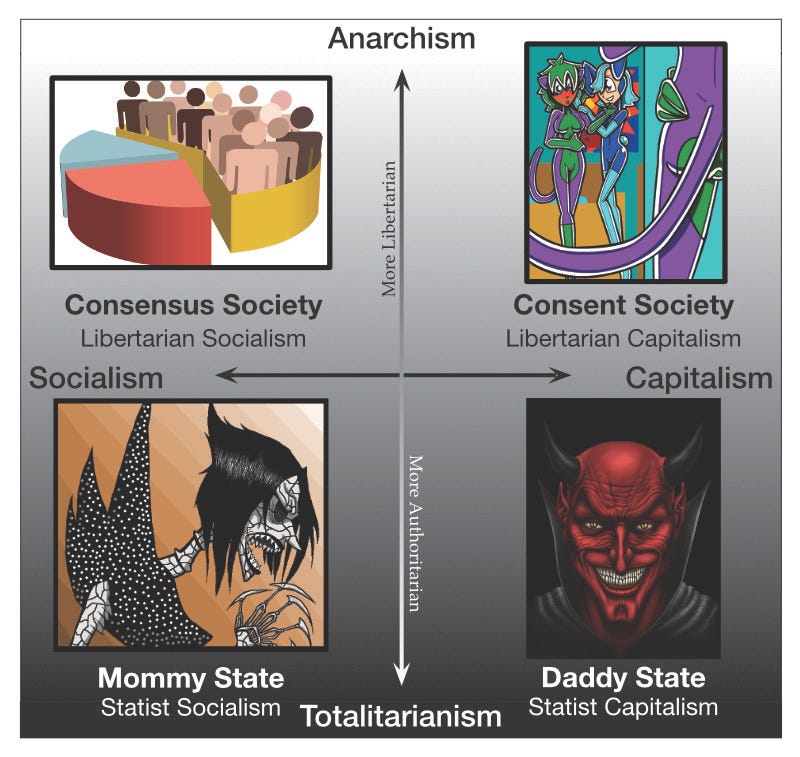

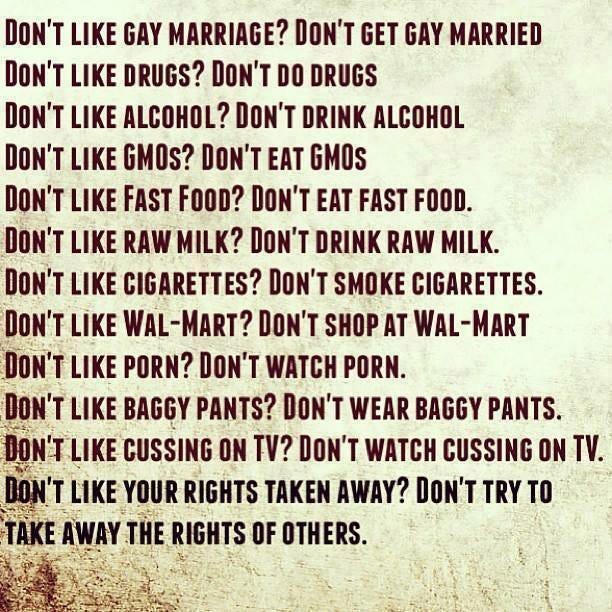

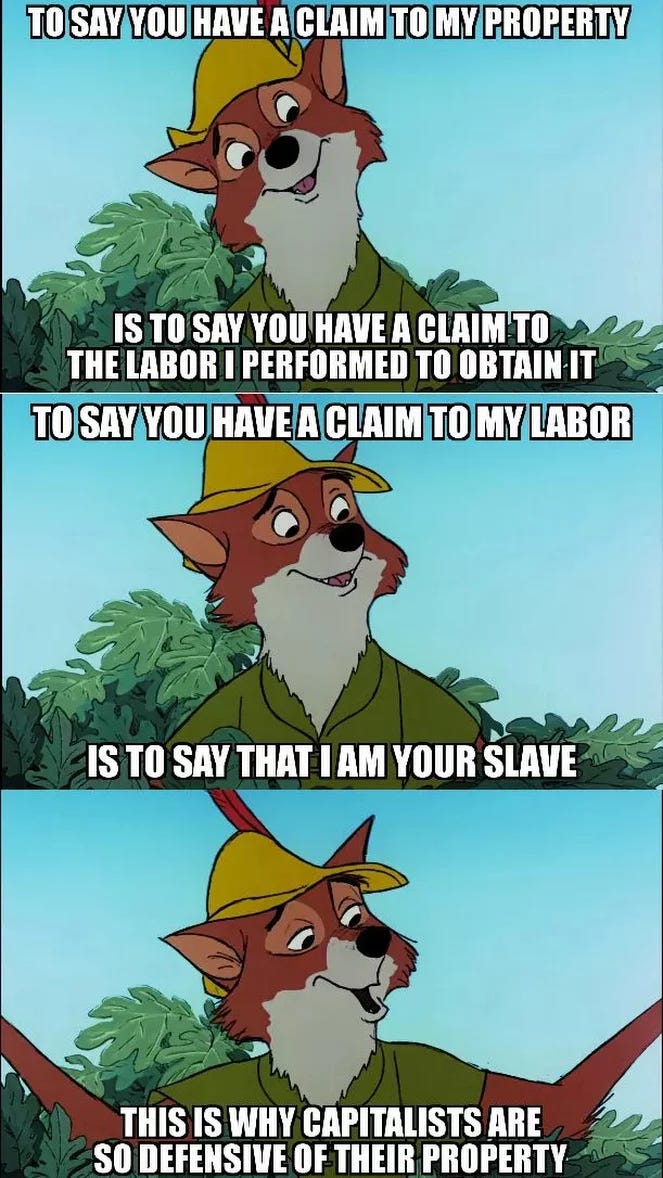

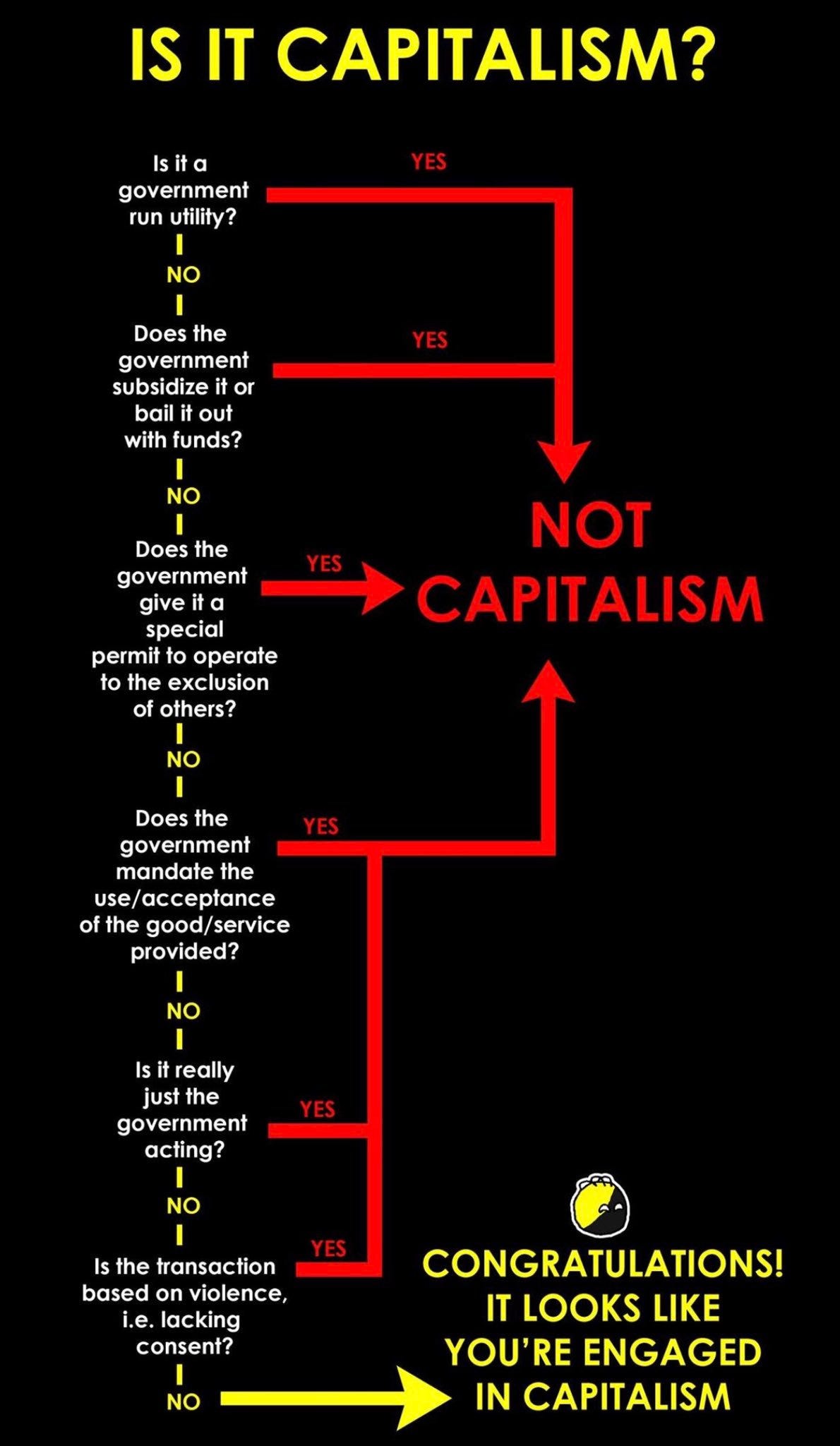

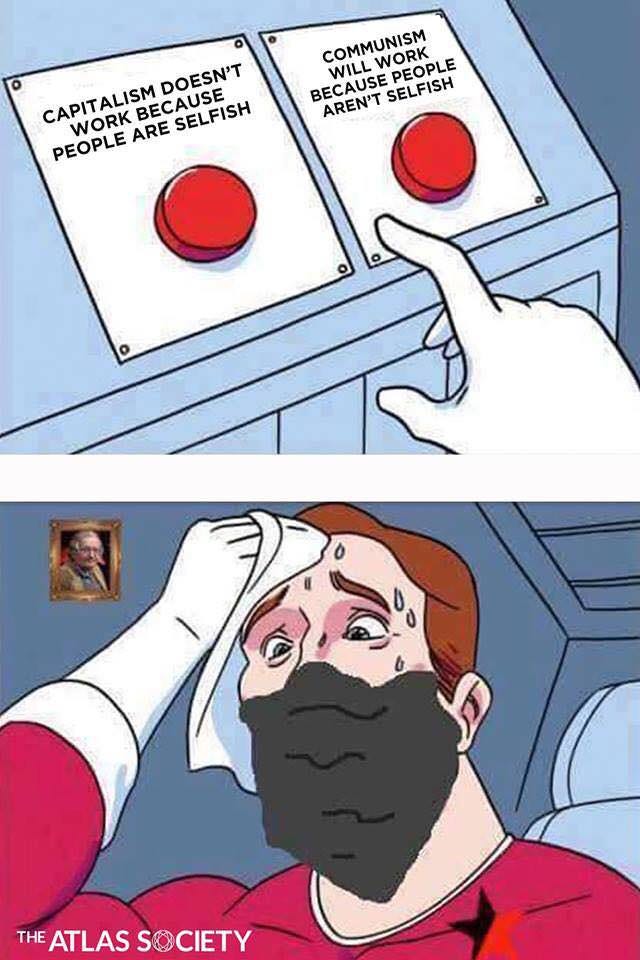
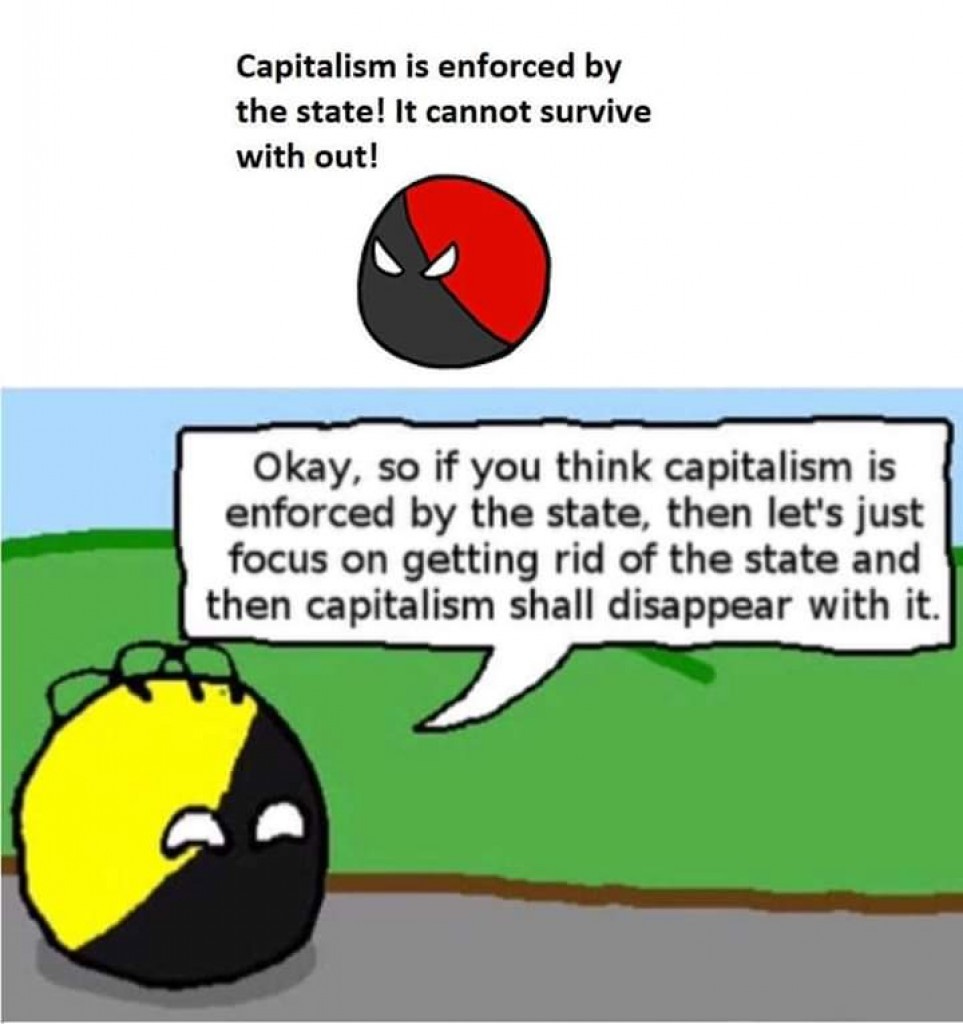
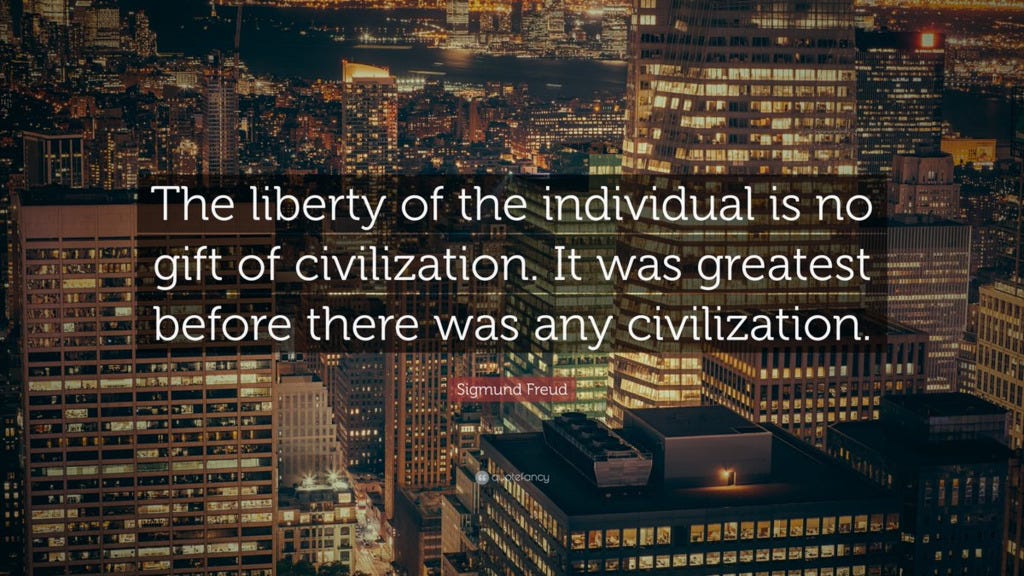
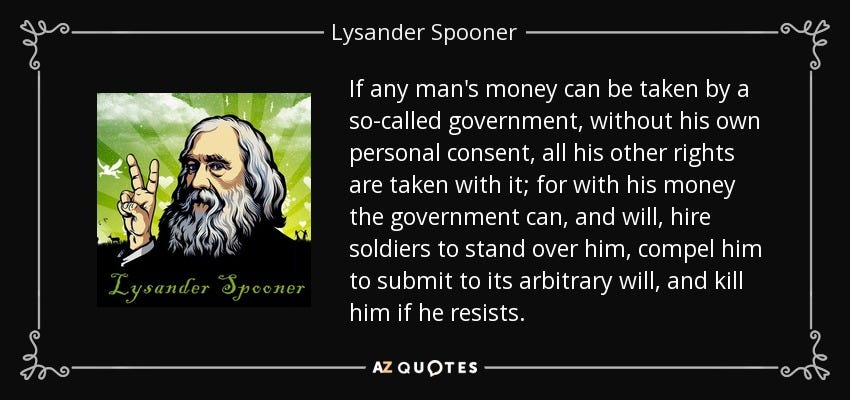

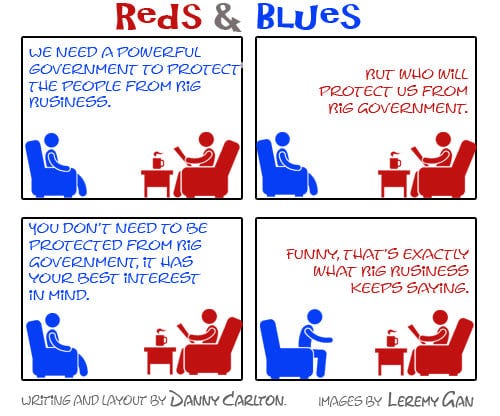

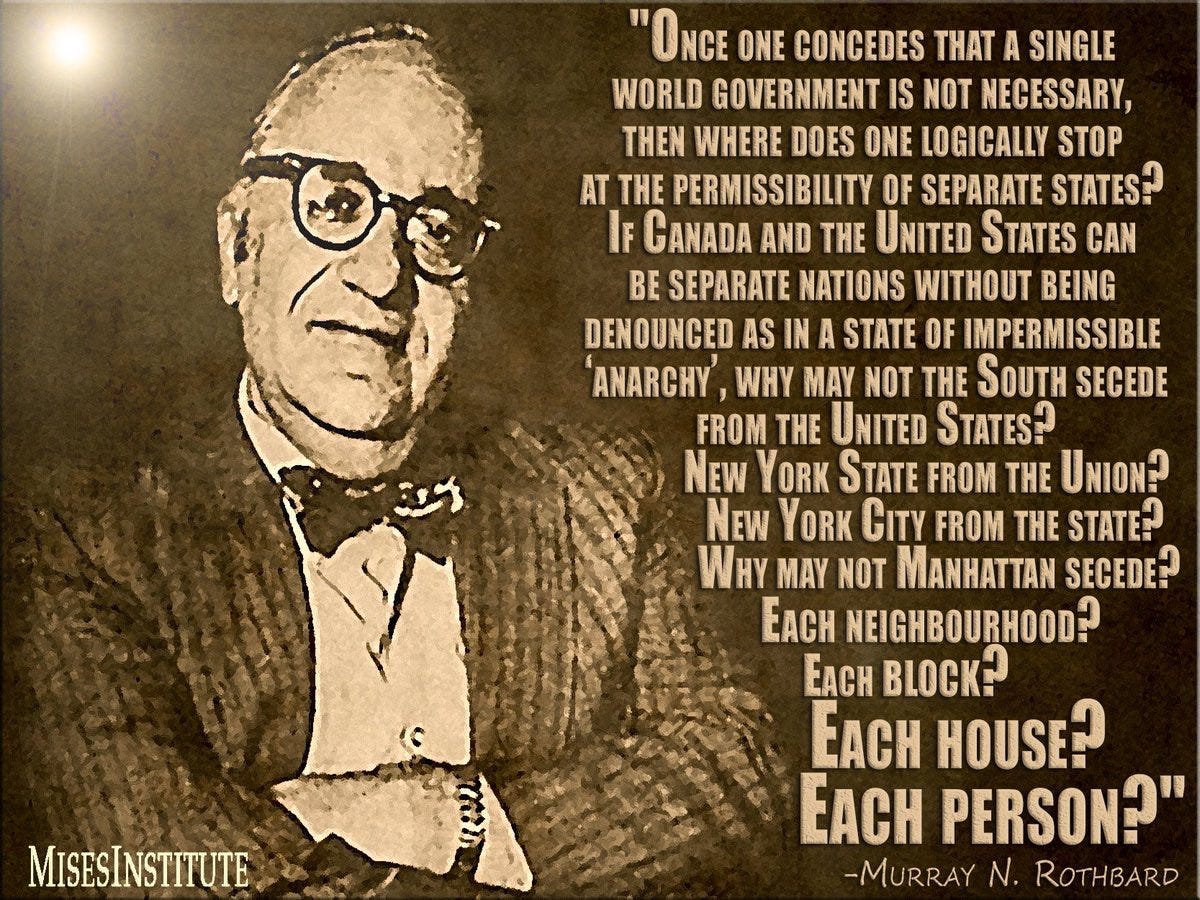


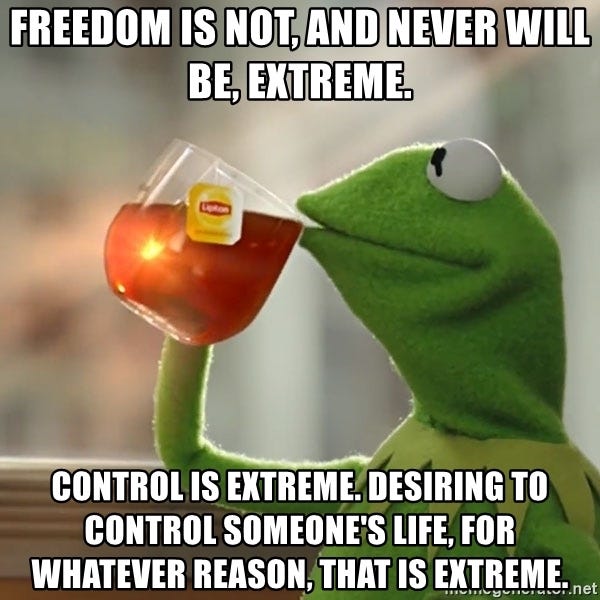
Great piece. I become more and more anarchist every day.
Right on. Sorry about the mixup!